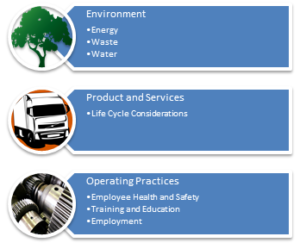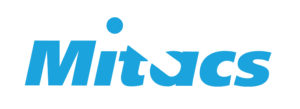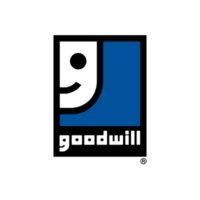Toolkit | Project
Nonprofit Social Enterprise
Goodwill Ontario Great Lakes: Toolkit used to Assess Current Sustainability Standing
By: Alena Samoday, Environmental Project Analyst – Goodwill Industries, Ontario Great Lakes
August, 2016
Goodwill Industries International (GII) is comprised of more than 164 chapters of standalone nonprofit social enterprises with a mission to help develop skills and employ people who face barriers to employment, and to help sustain the environment by diverting goods from landfill. Goodwill Industries, Ontario great Lakes (GIOGL) provides social programs and environmental services to the majority of Southwestern Ontario. GIOGL is a great example of how business sustainability initiatives are linked to an organization’s financial stability and can also help raise communities’ wellbeing. Continuous operational and strategic improvements help to reduce costs and generate revenue that goes towards the support of the organization’s mission.
Goodwill Industries has focused on the reuse and recycling of goods since its inception. In 2007, GII initiated a Going Green Taskforce with the objective to “Use Less, Serve More.” GII supports its chapters in meeting this objective by providing tools, knowledge-sharing forums, and Energy and Waste-Challenge friendly competitions among facilities. While GIOGL is determined to capture global efforts, it also focuses on its own long-term success and the operational efficiency within its facilities that include Community Stores, Donation Centres and Career Centres. The organization is always looking for cost saving opportunities in energy consumption and building maintenance, as well as to grow the salvage and recycling streams through effective sorting, waste management, and partnering with new salvage vendors.
Considering the continuous growth and proficiency in operations, GIOGL is putting a lot of effort into sustainability initiatives in order to better control its costs related to the use of natural gas, electricity, water, and waste related expenses. Currently the organization has no comprehensive sustainability, and would benefit from progress tracking and an assessment of its sustainability efforts. In the summer of 2016, GIOGL used the Sustainability Toolkit (Toolkit) designed by Tavares Group Consulting Inc. to create a snapshot of the organization’s current sustainability standing in order to guide its future priorities.

Figure 1. The three Sustainability Criteria identified through the Risk and Materiality Assessment
The Toolkit provides organizations with easy, step-by-step support to implement sustainability and allows for continuous improvement once sustainability initiatives have been integrated. Through the use of the Toolkit and its features, such as Risk and Materiality Assessment tools, GIOGL was able to identify key stakeholders, and the metrics and indicators within the Sustainability Criteria that are important to their operations. Two metrics, Energy and Waste were selected for further assessment. A gap analysis was performed and the Toolkit was used to provide a path forward from developing procedures and action plans, to communicating objectives, monitoring performance and reporting back to stakeholders.
First an assessment of the Energy metric was performed, with the main objectives of analyzing current procedures for tracking energy consumption data, identifying benchmarks and targets, and monitoring performance of energy indicators. Based on the results of the gap analysis, many gaps and recommendations were identified. For example, the continuous updates and improvements in data management for energy consumption were addressed to ensure clear and consistent tracking and the ability to target appropriate energy indicators per facility.
Waste Management was the second metric chosen, with the main objective to identify gaps, issues and opportunities in the sorting, salvage and recycling streams. As a non-profit organization, GIOGL is highly dependent on the supply of donations, salvage sales, and cost-saving disposal and recycling streams. The sustainability gap analysis identified those gaps that were already known to the organization, therefore helping to appropriately prioritize its waste-related initiatives. As a result, further opportunities for collaboration with external organizations and companies dealing with disposal and recycling of problematic materials, such as coffee cups, furniture and mattresses were provided as a recommendation.
The use of the Toolkit helped GIOGL to focus its prioritization towards monitoring and reducing energy consumption, and to perform its waste management activities in a more formalized way. Using the guidelines, recommendations were provided for the remaining steps of the Plan-Do-Check-Act approach. This information was summarized in a comprehensive report which will be used for other employees with sustainability-related responsibilities and to prioritize further sustainability initiatives.
 The research for this case study was funded with the support of a Mitacs Accelerate grant. For more information on the research project, please view our blog.
The research for this case study was funded with the support of a Mitacs Accelerate grant. For more information on the research project, please view our blog.



